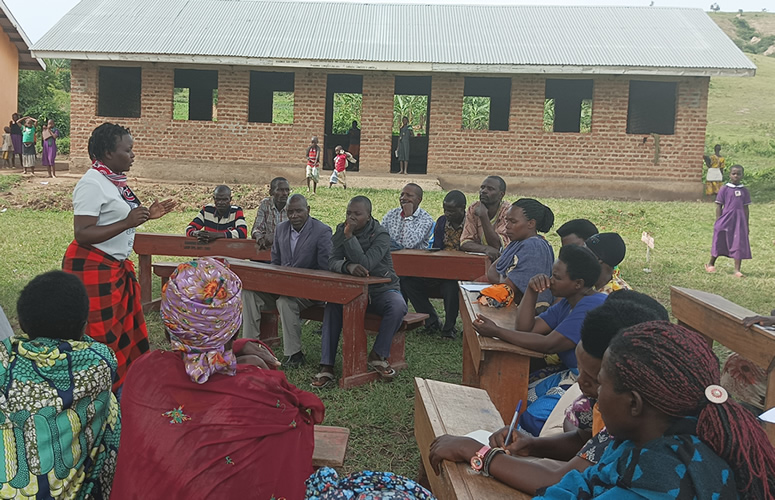Sexual Reproductive Health
Women in Action believes that all children, adolescents and young people have the right to make their own free and informed choices and to have control over their sexual and reproductive health and lives, free from coercion, violence, discrimination and abuse. Girls and young women, in particular, are denied the ability to exercise these rights. Fulfilling the rights of all children, adolescents and young people is fundamental to achieving gender equality.
A high prevalence of gender inequality and discriminatory social norms mean that girls and young women often lack the voice, agency and autonomy to make their own decisions in relation to their sexual and reproductive health and are frequently denied access to quality sexual and reproductive health information and services. This can leave them vulnerable and unable to protect themselves from unwanted pregnancy and sexually transmitted infections (including HIV), as well as from complications related to pregnancy and childbirth. It can also result in serious psychological harm. Girls and young women are frequently subjected to serious human rights violations, including coerced sex, sexual violence and harmful practices, such as female genital mutilation/cutting and child, early and forced marriage.
Women in Action supports the new Global Strategy, in which SRHR is identified as a priority, and our work in relation to the 2030 Agenda and the Sustainable Development Goals – in particular, Goals 3 and 5.
We build conversations on sexuality and relationships for parents and caregivers of young adolescents. Most parents want to support their children as they go through this phase of changes in their life, however, often are unsure how to start conversations or how to address sensitive topics
Sexual Reproductive Health
We train parents and other caregivers of young adolescents aged 10-15 about Comprehensive Sexual Education, we take them through the SRHR curium of 10 sessions twice a month. The overall goal is to explore with parents the physical, emotional and mental journey that their children go through during adolescence and empower them to support their children on this journeyHow do we do it

Women in Action is Pleasure Positive!
How can sex positivity contribute to a world where all children, adolescents and youth in all their diversity can learn, lead, decide and thrive?
What is a pleasure-based approach and why is it important?
One of our core areas of work is to protect, promote and support adolescents’ and young peoples’ sexual and reproductive health and rights. But historically, many SRHR programmes are delivered through a sexual risk perspective - focusing on the dangers rather than the pleasures, of sex and sexuality. This has meant that rather than framing sex and sexuality as an essential, joyful, natural part of being human programmes tend to emphasise the negative consequences of sexual activity, such as unintended pregnancy or sexually transmitted infections.
Research has shown that using fear and risk to try and change behaviour doesn’t work. An extensive global review (led by WHO and the Pleasure Project) of 33 unique interventions targeting sexually transmitted infection and HIV risk reduction from 2005-2020 found that:
Prioritising pleasure, rather than the fear of danger or disease, increases the likelihood of safer sex. Sexual health programmes that include sexual desire and sexual pleasure improve knowledge and attitudes around sex and increase condom use, as compared to those that do not.
Pleasure-inclusive sexual health increases sexual self-esteem, sexual self-confidence and safe choices.